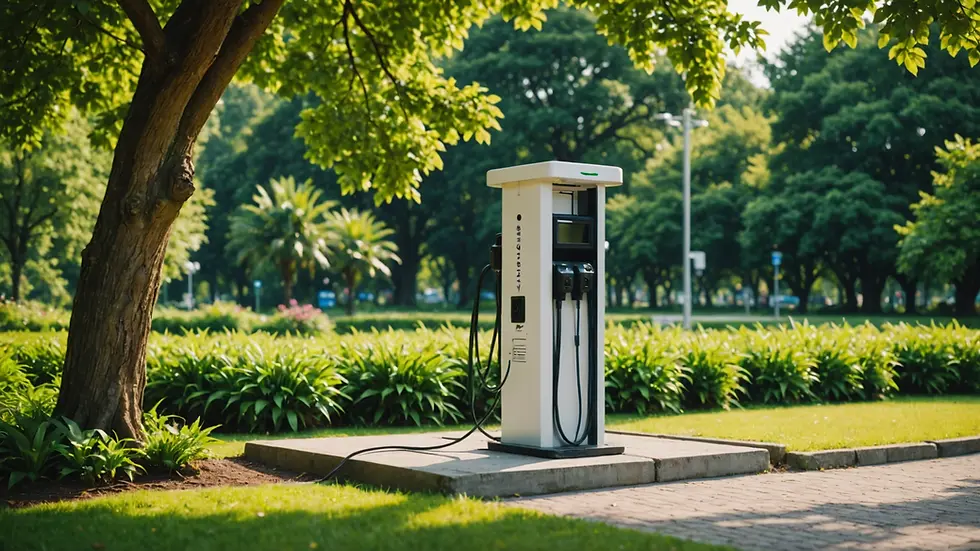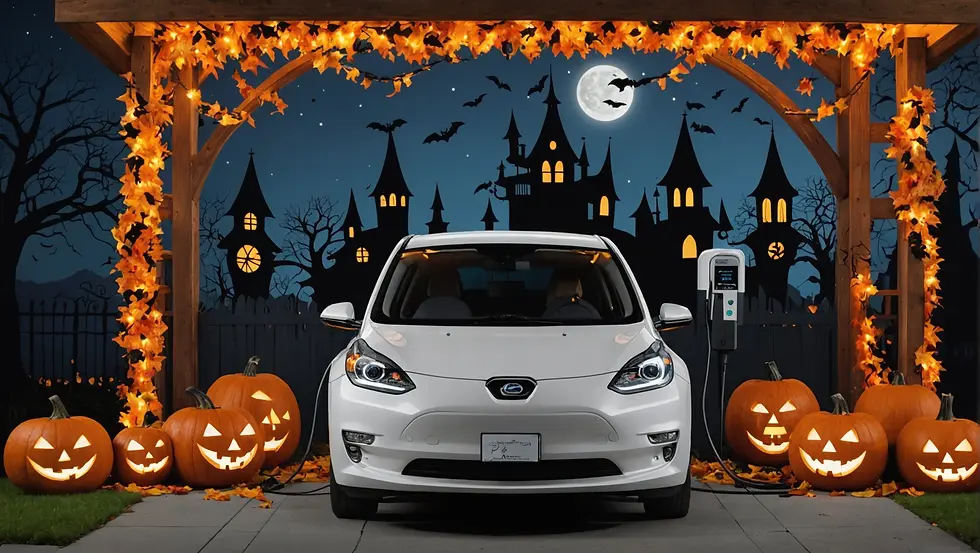Exploring the True Cost of Transportation: Gas Vehicles vs. EVs in BC
- Aurora Charging

- Dec 12, 2024
- 4 min read
The conversation around gas vehicles versus electric vehicles (EVs) is heating up in British Columbia (BC). With gas prices climbing and environmental concerns growing, many people are re-evaluating their transportation choices. Understanding the financial and environmental impacts is crucial for making an informed decision. This post will compare the fluctuating costs of gas vehicles with the more stable costs associated with EVs in BC.
The Current Landscape of Gas Prices in BC
Gasoline prices in BC are notoriously unstable. As of 2024, average prices have consistently surpassed $1.70 per liter in many urban areas. For instance, in Vancouver, prices have reached as high as $2.10 per liter during peak periods.
This volatility is a heavy financial burden on gas vehicle owners. In fact, research shows that the average British Columbian spends around $1,500 annually on fuel for a gas vehicle. When inflation hits and prices rise, some families may find themselves paying upwards of $2,000 just to fill their tanks over the course of the year. Routine expenses like servicing and engine repairs can add another $500 to $1,000 annually, leading many to see gas-powered vehicles as a costly investment with limited return.
The Case for Electric Vehicles
In contrast, the cost of operating an electric vehicle is much more predictable. Charging your EV in BC usually costs around 2 to 5 cents per kilometer, compared to about 12 to 15 cents per kilometer for gasoline. For example, a typical gas vehicle that averages 10 liters per 100 kilometers will cost approximately $14 to drive 100 kilometers. An EV, on the other hand, would cost just $2 to $5 for the same distance.
Furthermore, many EV owners take advantage of government incentives, including rebates and tax credits that can lower the purchase price. In BC, these incentives can range from $3,000 to $5,000, significantly offsetting the initial cost of an EV. When assessing the total cost of ownership—which includes maintenance, fuel costs, and potential rebates—it's clear that EVs can offer substantial long-term savings.

Long-Term Financial Benefits of EVs
The long-term financial benefits of owning an EV can be impressive. Even though the initial purchase price of an electric vehicle is often higher than that of a comparable gas vehicle, the lower operating costs can make up for that difference over time. EVs typically require less maintenance. For instance, they do not need oil changes, often have fewer moving parts, and use regenerative braking systems that result in less wear on brake pads.
Studies indicate that the cost of EV batteries is projected to drop by as much as 40% by 2030. Such improvements mean that EVs will be even more affordable for BC drivers in the near future. The combination of lower running costs and the ongoing rise in gas prices suggests that EVs are a smart choice for long-term savings.
Environmental Considerations: A Holistic View
In addition to financial benefits, electric vehicles present significant environmental advantages. Transitioning to EVs can drastically lower greenhouse gas emissions—by over 50% compared to gas vehicles—helping that BC meet its climate goals. The province has committed to reducing emissions by 40% below 2007 levels by 2030.
Gas vehicles contribute not only to increased emissions but also to air pollution-related costs, which are estimated at over $1.3 billion annually in BC due to health impacts and environmental damage. Choosing EV technology can alleviate some of these concerns and also provide immediate financial relief for drivers.
Emerging Infrastructure and Future of EVs
BC is investing heavily in EV infrastructure, making it easier for residents to adopt electric vehicles. As of 2023, there are over 2,000 public charging stations available across the province, with plans to add even more. This infrastructure addresses one of the main concerns among potential EV buyers: range anxiety.
Unlike gas stations, which can be limited in their locations, charging stations are increasingly accessible in both urban and rural areas. With options for home charging, EV drivers drive with peace of mind, knowing that they can easily find a place to recharge.
The Clearer Cost Path Forward
The choice between gas vehicles and EVs in British Columbia is becoming clearer. Gas vehicles can impose a hefty financial burden, especially when fuel prices spike unexpectedly during inflationary periods. The unpredictable nature of gas prices creates anxiety and leads to additional expenses.
In contrast, electric vehicles offer a stable and economical alternative. With lower operating costs, government incentives, and a smaller environmental impact, EVs are increasingly the smart choice for BC consumers. As technology improves and infrastructure continues to be developed, making the switch to an EV is not just an environmentally friendly decision; it also makes sound financial sense.
For residents of BC exploring their transportation options, considering an electric vehicle may not only be an eco-conscious choice but also a financially wise one. Embracing this transition can provide personal relief from rising fuel costs while contributing to a more sustainable future. The future of transportation in BC is undoubtedly leaning towards electric vehicles, and the advantages are becoming too significant to ignore.




Comments